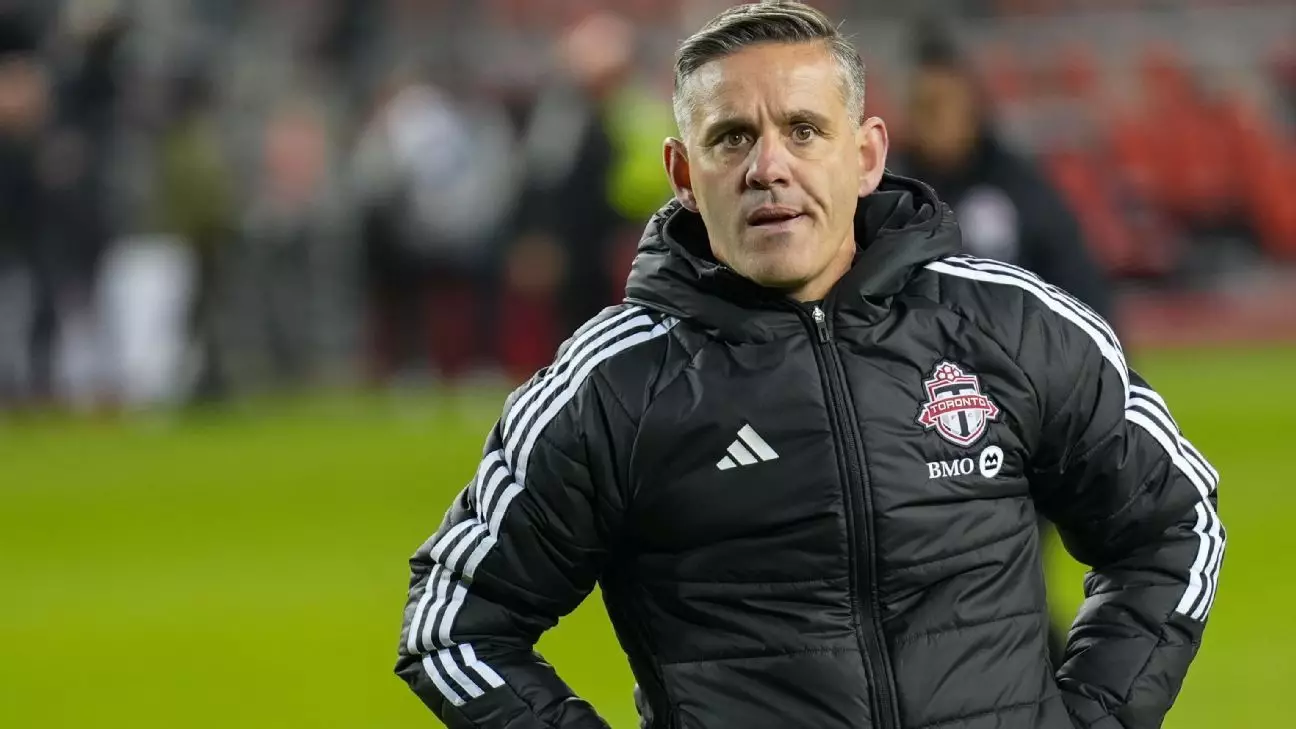The recent resignation of John Herdman as head coach of Toronto FC marks a significant moment for the Major League Soccer (MLS) team. For 15 months, Herdman led the club, having taken the helm back in August 2023. His departure, formally announced on Friday, comes as a direct consequence of the team’s overall performance and strategic direction. In a heartfelt statement, Herdman expressed that stepping away was a difficult yet necessary choice, emphasizing his commitment to the organization’s future vision. His tenure yielded an overall record of 16 wins, 22 losses, and 6 draws, but ultimately, the 2024 season concluded with a disappointing 11-19-4 standing.
Herdman’s leadership saw mixed results, with moments of success contrasted vividly against disillusioning performances. During his time, Toronto FC reached the League’s Cup group stage and the Canadian Championship final, which offered glimmers of hope for the club’s fans. However, the team failed to qualify for the MLS Cup playoffs, a decisive benchmark for any ambitious club. The dismal season outcomes underscore the complexity and unpredictability of managing a professional soccer team—one that demands not only tactical expertise but also the ability to inspire and unify players.
Reflecting on his experience, Herdman acknowledged the loyal Toronto FC fanbase, whom he described as “incredible.” The bond between coaches, players, and supporters can be critical in sports, and this symbiotic relationship often dictates whether a team thrives or falters. The support Herdman received during challenging times allowed him to navigate the ups and downs of the season. His parting words of gratitude highlight the importance of community in professional sports, especially in a city as passionate about soccer as Toronto.
Looking forward, Toronto FC must initiate a robust search for their next head coach, with team president and CEO Keith Pelley confirming that this process will begin immediately. The club now joins a growing list of MLS teams seeking new leadership, including New York City FC, Atlanta United, Philadelphia Union, and Vancouver Whitecaps—highlighting a trend of instability across the league. The next appointment could bring either the revitalization of the team or signal a prolonged period of uncertainty, depending entirely on the vision and capabilities of the new coach.
As Toronto FC embarks on this critical transition, the future of the club hangs in the balance. John Herdman’s resignation is not merely the end of his chapter but opens a door to new possibilities and challenges for the team. In the world of professional soccer, change is often a catalyst for growth. With fresh leadership, Toronto FC has the opportunity to redefine its strategy, rebuild morale, and aim for heights previously uncharted. The winds of change may indeed usher in a new era for this storied franchise, one that fans hope will bring back the glory days they so fervently remember.

